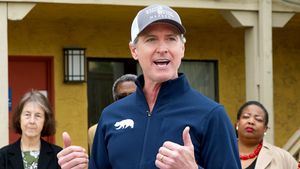Treatment GuideJust DiagnosedSex & DatingAfrican AmericanStigmaAsk the HIV DocPrEP En EspañolNewsVoicesPrint IssueVideoOut 100
CONTACTCAREER OPPORTUNITIESADVERTISE WITH USPRIVACY POLICYPRIVACY PREFERENCESTERMS OF USELEGAL NOTICE
© 2025 Pride Publishing Inc.
All Rights reserved
All Rights reserved
Scroll To Top
By continuing to use our site, you agree to our Privacy Policy and Terms of Use.
Acceptance is easier said than done. Upon hearing the word, one tends to think it easy -- acceptance, that often-used noun to describe the central task of those of us at the society's fringe -- gay, minority, HIV-positive. Something new-agey, Oprah-like, as though self-care is intuitive or easy, or for that matter familiar. This past month I've discovered the difficulties inherent in acceptance. Presuming that it's easy is fodder for self-blame, interpreting wrongly that something is wrong with me for finding it more difficult than others apparently do. In recovery circles this frequently is described as comparing how one feels to how others look. I certainly fall victim to this as I observe others around me, apparently finding their way more easily and more serenely than I typically feel. This isn't always the case. When surrounded by certain people in my life, the iciness of my boundaries melts somewhat, as I'm able to let others in, recognizing in my best moments that they love and accept me, my quirky and neurotic tendencies comprising my loveability. The paradox is that pretending I'm OK will garner the validation and love I seek. At the same time, such pretending left me with feelings of emptiness as I realized such validation was of another person! Not me. We all have our own issues and ways of coping. For me, it has always been the case that when confronted with painful emotions, my first reaction was to escape. At first through thinking, later through the use of various substances. Either way, feelings were profoundly uncomfortable, primarily because of my family's alcoholism but also because I didn't feel safe to share feelings, as many of them dealt with being gay. Being adolescent is difficult enough with the confusing feelings it entails. Throw being gay into the mix and it's downright baffling and painful. Lately, however, I have noticed more tears. And contrary to times past, I'm allowing myself to experience and learn from them. This is an incredibly confusing and painful process. It's disorienting. The familiar landmarks of my coping mechanisms of escape and intellectualization no longer work! They provided comfort and security for a long time. Wandering in this emotional desert brings with it a sense of being lost, aimless, groundlessness. It's one thing to say, 'accept where you are,' as though it's easy and peaceful. It's anything but, for acceptance means accepting what up to this point has been unacceptable. And while it frees me from the prison of the past, it also frees me from the usual ways I've made sense of myself and the world around me. In other words, it's both relieving and distressing, bringing with it gratitude and grief. No wonder it's confusing! Many find that becoming HIV positive is just like this. In refusing to accept the illness, people experience the comfort of holding onto how they have viewed themselves. All remains right with the world because things are as they've always been. At the same time such lack of acceptance necessarily brings with it growing dissatisfaction with life and one's place in it. Putting up a front and getting validation for what one isn't. It also re-invites the self imposed prison that so many of us have lived in for so long. Acceptance means honoring the difficulties of acceptance itself, providing space and permission for it to be rocky and awkward, space and permission to be human.
From our Sponsors
Most Popular
Lexi Love comes out as HIV+ after Trump deletes federal resources
January 23 2025 11:23 AM
Grindr is reminding us why jockstraps are so sexy and iconic
May 02 2025 5:36 PM
BREAKING NEWS: Trump admin moves to end federal HIV prevention programs
March 18 2025 6:10 PM
Trump's orders prompt CDC to erase HIV resources
January 31 2025 5:29 PM
Celebrating Black History Month with our annual African American issue
February 01 2025 3:28 PM
Tyler TerMeer vows to continue to fight for health care for all
January 28 2025 3:00 PM
Discover the power of Wellness in your life
March 26 2025 12:41 PM
Plus: Featured Video
Latest Stories
Dancer. Healer. Survivor. DéShaun Armbrister is all of the above
July 02 2025 8:23 PM
Two right-wing Supreme Court justices signal they may uphold access to PrEP and more
April 21 2025 4:10 PM
Broadway's best raise over $1 million for LGBTQ+ and HIV causes
April 03 2025 7:15 PM
Plus nominated for 2025 GLAAD Media Award
January 22 2025 12:42 PM
'RuPaul's Drag Race' star Trinity K Bonet quietly comes out trans
December 15 2024 6:27 PM
AIDS Memorial Quilt displayed at White House for the first time
December 02 2024 1:21 PM
BREAKING: Supreme Court rules to save free access to preventive care, including PrEP
June 27 2025 10:32 AM
1985: the year the AIDS crisis finally broke through the silence
June 26 2025 11:24 AM
Trump admin guts $258 million in funding for HIV vaccine research
June 03 2025 3:47 PM
500,000 Children at Risk: PEPFAR Funding Crisis
April 08 2025 3:51 PM
The Talk Season 5 premieres this spring with HIV guidance for the newly diagnosed
March 26 2025 1:00 PM
Jess King is here to help you live your happiest, healthiest life yet
March 24 2025 4:35 PM
A camp for HIV-positive kids is for sale. Here's why its founder is celebrating
January 02 2025 12:21 PM
VIDEO: A man living with HIV discusses his journey to fatherhood
June 10 2025 4:58 PM
HRC holds 'die-in' to protest Trump health care cuts
April 28 2025 2:11 PM
Season 4 of The Switch on resilience & radical self-love returns this spring
March 26 2025 12:20 PM
Gerald Garth is keeping people of color happy and healthy through trying times
March 11 2025 3:38 PM
This long-term HIV survivor says testosterone therapy helped save his life.
December 16 2024 8:00 PM
Ricky Martin delivers showstopping performance for 2024 World AIDS Day
December 05 2024 12:08 PM
Trending stories
Recommended Stories for You














































































